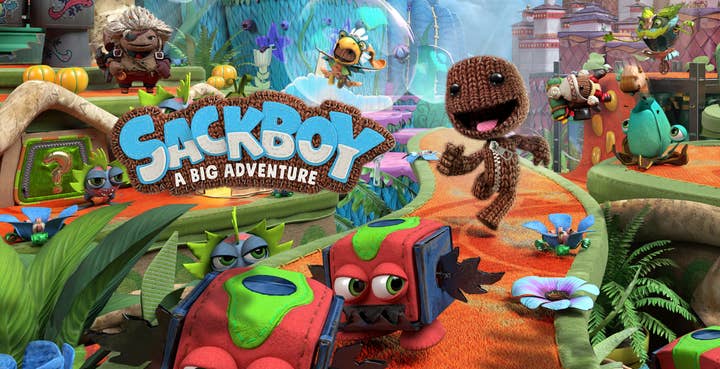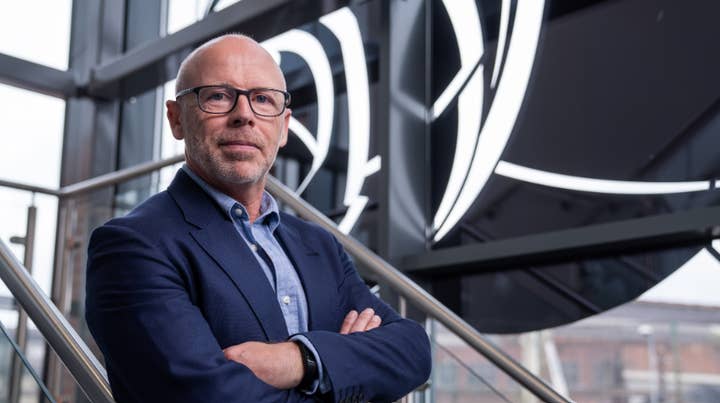Getting growth right: The future of game industry acquisitions and consolidation | Playable Futures
Sumo Group CEO Carl Cavers considers a new generation of acquisitions, and how they're key to the industry's future
Under Sumo Group, a family of companies including Sumo Digital, Atomhawk and Auroch Digital has been gathered. Sumo Digital now has 11 studios based across the UK, and further afield in places such as India's eastern city Pune and Wrocław, Poland. Sumo Group also counts an indie publishing arm as part of its family, having established Secret Mode a little over a year ago - shortly before it opened development studio Timbre in Canada that same year.
Sumo has taken the reins of established IPs, is a co-developer, a porting specialist and a creator of its own properties. The team have worked on titles such as Sonic, Outrun, LittleBigPlanet, Disney, Doctor Who, Hitman, Forza and Broken Sword. Alongside internal creations such as Snake Pass.
The Group has grown to becoming a large, multi-team operation. But to Sumo Group CEO and Sumo Digital co-founder Carl Cavers, expansion isn't only about size.
As acquisitions, mergers and consolidation become more commonplace within the games industry, getting company growth right will increasingly define what future-facing game companies can be.
Consolidation, of course, has been a key talking point across the games industry after an explosive start to 2022. Microsoft acquired Activision Blizzard in a $68.7 billion deal in January, just days after Take-Two bought up Zynga for a reported $12.7 billion. As the industry grows however, so does the opportunity for a new era of more thoughtful acquisitions and expansions that help smaller teams and local hubs realise their true potential, whilst ensuring that the games industry continues to become a better place.
Growing a games business should never be about rushing for short-term gains. The best type of growth means greater revenues and better games with longer lifetimes. It means happier, more productive teams, chances to diversify, and more powerful ways to contribute to the forward journey of the wider industry.
To really seize those opportunities proceeding with care and consideration is absolutely critical.

Above all, there's what growth means to the people and studio(s) - those that form the heart and substance of a business. It is essential to consider their ambitions, concerns or insights as growth is planned, and that they aren't just seen as direct beneficiaries of expansion. At Sumo Group, we always want our people to feel that they are looked after, and that they have that shared community that you might associate with smaller teams. Maintaining that as we grow has been something we've really focused on.
EMBRACING POTENTIAL
In 2006, three years after Sumo Digital was founded, we started to think seriously about what needed to be done to address the future in terms of growth and expansion. At that time games were gaining popularity, and our team was already growing, the industry was heading in an exciting direction. That potential made us consider evolving Sumo into something beyond a single-team operation, we looked at how developing a multi-location business could take advantage of many different factors that would ultimately bring about a much more interesting future for any company.
For one, the simple act of having studios in different locations with different people at the helm delivers a wider range of perspectives, ideas, experiences and impulses. It can mean diversifying the range of cultural influences and working practices a games company can inherit, while employing a more wide-ranging array of skill sets and specialties. And as the industry continues its journey as an employer that serves an increasingly large and varied audience, those things are important.
The multi-location approach, whether global or local, can also bring commercial efficiency not possible through using outsourcing, while also ensuring control over quality. And with so many teams united under one organisation, establishing structures and systems that support and respect staff needs can be particularly impactful.
Importantly, acquiring a team isn't just about expanding a core business, or bolting on a new operation, custodianship of potential is also inherited. We're always motivated to genuinely help teams we acquire to focus on their strengths. Now we have a whole group of studios. When it comes to acquisition of a new team we look to remove a lot of the distractions to the business of making games - those core business functions such as HR, Finance, Commercial, IT and so on, and handle them for our newly acquired studios. That lets those teams focus on the business of making great games - as well as their strategic direction and future.
The best acquisitions aren't just about taking ownership of a team, they're about elevating what that team can achieve.
ACQUIRING TO ELEVATE
The acquisition of The Chinese Room by Sumo Digital offers a perfect example of the merits of that approach. At a point Dan Pinchbeck had essentially shrunk The Chinese Room back to himself as creative director. For a larger operation, acquiring a single-person studio might not seem like it presents an obvious or immediate commercial opportunity. But with The Chinese Room, beyond being believers in Dan, we also had a chance to acquire truly amazing game IP and, most importantly, a shared vision for what was possible.
"When establishing or acquiring studios in different locations, you're effectively investing in the local game community"
Dan can make amazing games but is also passionate about things in a way that perfectly aligns with our business and our company culture. We all knew there was an opportunity for accelerating The Chinese Room's growth by supporting and complementing what they do, and that's exactly what's guided us since they joined Sumo. Dan was able to focus on creativity and making games, and we were able to put Ed Daly in to serve as the studio director. That's really worked for us and The Chinese Room, and it's working in similar ways in our other studio acquisitions. That's not to say there's a one-size-fits-all solution, as every studio is unique. But going in with the mindset of supporting and elevating your new acquisition is increasingly important.
INVESTING IN COLLECTIVE POTENTIAL
It's worth considering that when establishing or acquiring studios in different locations, you're effectively investing in the local game community, both directly and indirectly. Today the games industry continues to emerge and expand across a remarkable spread of destinations globally, and that's where opportunities not just to grow your business, but also to expand upon the potential of games can be found.
To make this multiple location approach work, you have to think about investing in people and potential, rather than locations. We've chosen to establish teams in places like Pune because of the local talent there, and what was coming, rather than what was already in place. As globalisation and consolidation continue, that starting point of investing in people will only become more important and valuable.
In Pune we saw an emerging local game development industry and a bristling community defined by emerging talent. Years on, we've been part of that emergence, as Pune has grown as an amazing game and tech hub, having done our part to help fuel that journey, we gain from it more each day.
We'll continue to see more expansions and acquisitions in these emerging or newly emerged markets and fresh talent is uncovered and nurtured. Studio growth and industry growth are inseparable, if a company focuses on its own growth in isolation, it could end up being limiting.
CONSOLIDATING OPPORTUNITY
There is no doubt there will be more consolidation in the coming years. It's partly about the increasing effort needed to produce a game, as well as the need for a diversified skillset to realise the opportunity to make new and different styles of games for new and different types of audiences.
This isn't just a AAA matter, consolidation will become more common with smaller studios and in the indie space. Of course, there will always be those wonderful exceptions where a sole developer builds a hit, but as the opportunity for success grows, studios will need to stay at - or grow to - the relevant scale. Whatever types of game are being made in the future it is likely there will be a need for a fair-sized team to seize many of the opportunities that will arise.

These trends don't fundamentally change what it is to run a games business however. People will increasingly have to come together in the future to make games, but our industry has always been great at that.
Looking into the future, the opportunities are simply grander. The creative solutions we as an industry need to find are more complex and powerful, technology keeps bringing more potential - and increased challenge. The increasing breadth of what games can be will always include smaller creators, but a great many titles that push ambition and technology into new realms will require sizable, diverse and multidisciplinary teams.
Getting growth and large-scale collaboration right in the future is about being thoughtful... The best starting point for this is, without doubt, identifying, developing and retaining the right people.
Carl Cavers is CEO of Sumo Group and co-founder of Sumo Digital
Playable Futures is a collection of insights, interviews and articles from global games leaders sharing their visions of where the industry will go next. This article series has been brought to you by GamesIndustry.biz, Ukie, Sumo Group and Diva.

